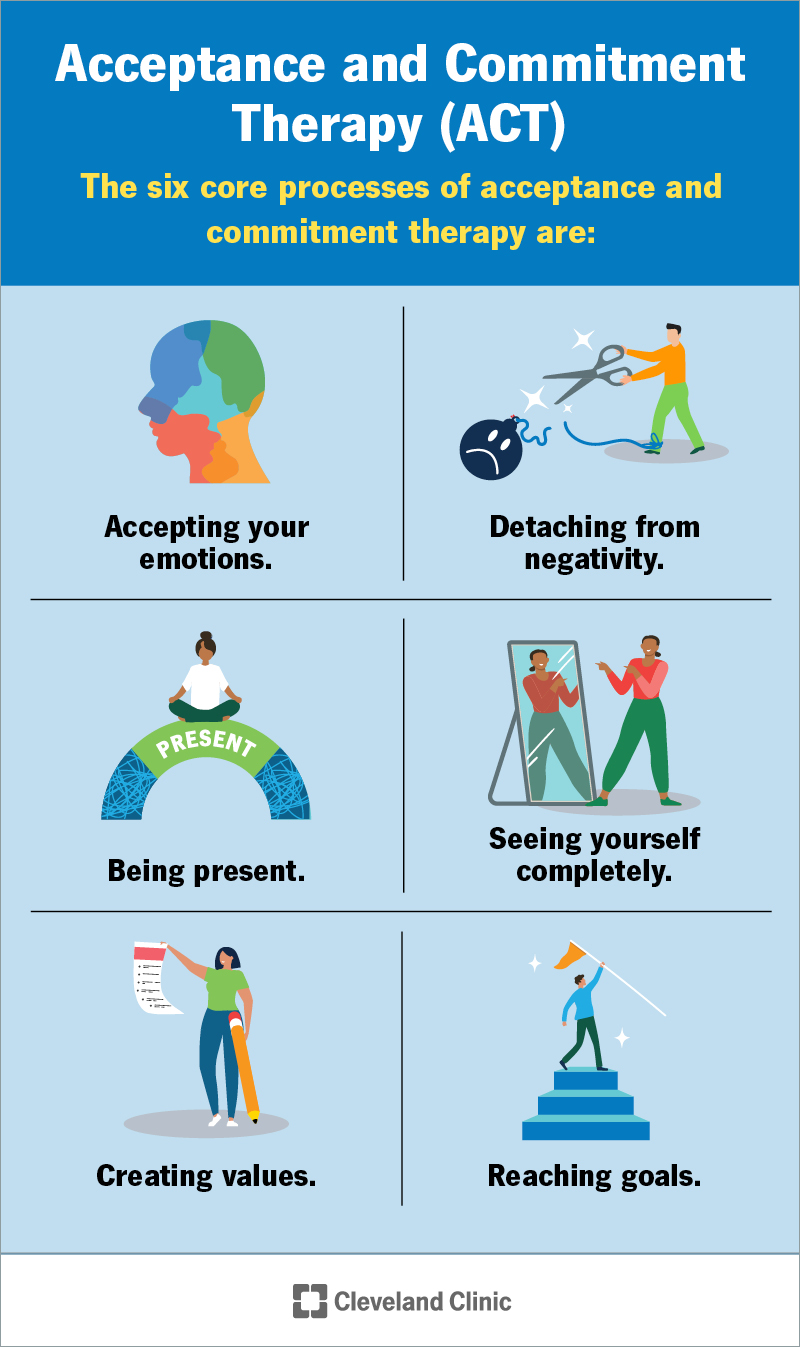Experienced counselling for anxiety disorder support by certified therapists
Experienced counselling for anxiety disorder support by certified therapists
Blog Article
Discovering Different Techniques in Coaching for Stress And Anxiety Disorder for Long-term Modification
When taking on stress and anxiety conditions, it's necessary to explore a range of therapy approaches. Each approach provides unique understandings and tools to assist you handle your symptoms efficiently. You could find that integrating methods can produce the very best results. Recognizing the nuances of these techniques is key to cultivating enduring adjustment. What happens if the best combination could launch a new level of emotional health for you?
Comprehending Anxiousness Disorders: A Quick Review
Anxiousness conditions, which impact countless individuals worldwide, can considerably impact every day life. You may experience frustrating sensations of worry or worry that appear unmanageable. These feelings can result in physical signs like an auto racing heart, sweating, and even dizziness. Typical kinds of anxiety disorders include generalised anxiety disorder, panic problem, and social anxiousness disorder. Each has special signs, yet they all share a propensity to disrupt your regular and relationships.Understanding the origin of your stress and anxiety is important. It might come from genes, mind chemistry, or life experiences. Identifying your triggers can help you manage your actions much better. It is necessary to bear in mind that you're not alone in this struggle. Many individuals encounter comparable challenges, and seeking assistance is a solid step towards feeling better. By finding out about anxiety conditions, you're currently on the path to understanding and managing your condition extra effectively.
Cognitive-Behavioral Therapy: Challenging Unfavorable Thought Patterns

Determining Adverse Thought Triggers
Acknowledging the particular triggers behind your negative ideas can be important in managing anxiousness when you encounter moments of distress. Begin by focusing on scenarios that prompt sensations of worry or fear. Is it a congested space, a forthcoming target date, or a discussion with specific individuals? Write down these circumstances in a journal. This will aid you determine patterns in your reasoning. Notice physical sensations that accompany your negative ideas, like an auto racing heart or rigidity in your upper body. By pinpointing these triggers, you acquire insight into what's sustaining your stress and anxiety. Understanding these connections is the initial step in challenging those thoughts and inevitably regaining control over your emotional feedbacks.

Replacing Thoughts With Positives
Challenging negative thought patterns is an important action in transforming your attitude and minimizing anxiousness. You might commonly locate yourself caught in cycles of self-doubt or devastating thinking. Rather than letting these thoughts dictate your feelings, practice changing them with realistic alternatives or positive affirmations. When you believe, "I can not manage this," move it to, "I can take care of challenges one action at a time." This simple change can greatly impact your psychological state. Routinely identifying and countering these unfavorable ideas assists develop a much healthier internal discussion. Bear in mind, it requires time and effort, but regularly practicing this technique can bring about long lasting modification, empowering you to face anxiety with restored confidence and resilience
Structure Coping Methods With Each Other
Replacing adverse thoughts is just the start of managing anxiousness effectively. To produce long-term modification, you need to construct coping techniques that equip you. Cognitive-Behavioral Treatment (CBT) assists you identify and test those unhelpful idea patterns. With each other, you and your therapist can explore how these ideas impact your sensations and behaviors.Start by developing useful techniques, like journaling or mindfulness workouts, that allow you to face stress and anxiety head-on. When you encounter your concerns slowly, you'll learn to react in different ways.

Mindfulness and Acceptance-Based Approaches: Growing Present-Moment Recognition
As you navigate the complexities of stress and anxiety, incorporating mindfulness and acceptance-based techniques can considerably boost your capacity to cultivate present-moment awareness. By concentrating on the below and currently, you'll find that you can observe your thoughts and feelings without judgment. This practice assists you acknowledge your stress and anxiety without really feeling overwhelmed by it.Engaging in mindfulness exercises, such as deep breathing, body scans, or led meditations, permits you to ground yourself in your present experience. Acceptance-based methods motivate you to accept your emotions as opposed to fight against them. When you accept your feelings, they lose their power over you.Incorporating these techniques into your day-to-day routine can transform how you reply to anxiousness. You'll create strength and discover to navigate demanding circumstances with higher simplicity. Eventually, growing present-moment understanding lays the foundation for enduring adjustment, equipping you to lead a more fulfilling life.
Exposure Therapy: Confronting Worries Progressively
Direct exposure therapy assists you face your concerns in a steady way, making it less frustrating. You'll learn strategies to encounter anxiety-provoking situations step by step, while also developing coping techniques to handle your reactions. This strategy empowers you to take control and decrease anxiety in time.
Progressive Exposure Methods
When dealing with anxiousness, gradually confronting your fears can be an effective means to regain control. This technique, referred to as steady direct exposure, involves slowly revealing yourself to the circumstances or things that trigger your anxiousness. Begin with less intimidating circumstances and progressively function your way as much as even more tough ones. If you're afraid of public talking, you might start by talking in front of a mirror, then proceed to sharing ideas with a pal, and ultimately attend to a small team. Each step aids desensitize you to the concern, developing your self-confidence with time. Remember, it's vital to speed on your own and celebrate small victories as you relocate via this process, strengthening your capability to manage anxiety properly.
Structure Coping Techniques
Building reliable coping approaches is essential for taking care of anxiousness, particularly as you confront your fears gradually. One effective approach is exposure treatment, Continued where you begin by encountering your concerns in a controlled way. Begin with much less daunting scenarios and gradually work your way up to even more difficult situations. This steady exposure helps desensitize you to stress and anxiety activates, making them much less overwhelming.Incorporate leisure methods, such as deep breathing or mindfulness, to relax your mind during exposure. Track your progress, celebrating little success along the way to improve your confidence. Remember, it's all right to take your time; the objective isn't perfection but consistent renovation. By developing these strategies, you'll equip yourself to navigate anxiety and welcome life extra completely.
Psychodynamic Treatment: Revealing Origin Reasons of Anxiety
Psychodynamic treatment checks out the unconscious mind, disclosing the root causes of your anxiety - Counseling services for anxiety. By analyzing your ideas, feelings, and previous experiences, this strategy assists you reveal underlying conflicts and unresolved concerns that may add to your present stress and anxiety. You'll collaborate with a specialist to check out childhood years experiences, partnerships, and emotional patterns that form your reactions today.As you obtain insight into these much deeper layers of your subconscious, you'll begin to acknowledge just how past occasions influence your present actions. This understanding can cause catharsis, permitting you to process feelings you might have suppressed.Through the restorative partnership, you can additionally determine defense reaction that may have developed over time, using a clearer course to alter. Eventually, psychodynamic treatment furnishes you with the devices to address your stress and anxiety at its core, promoting enduring change in your psychological health
All Natural and integrative Techniques: Incorporating Methods for Greater Efficiency
Integrating numerous healing strategies can boost your journey towards taking care of stress and anxiety better. By incorporating aspects from cognitive-behavioral treatment, mindfulness practices, and alternative approaches, you can develop a customized strategy that resolves your unique requirements. As an example, you might utilize cognitive-behavioral methods to challenge unfavorable thought patterns while including mindfulness exercises to ground yourself in the here and now moment.Additionally, discovering all natural practices such as yoga or meditation can promote leisure and decrease anxiousness signs. This blend permits you to create greater self-awareness and resilience.Experimenting with these varied methods can help you discover what resonates most with you. Keep in mind, it has to do with discovering a harmony that works, instead of sticking to a solitary approach. This integrative technique not only offers immediate alleviation however also fosters lasting abilities for taking care of anxiety, equipping you to recover control over your life.
The Function of Support Solutions: Building Durability With Connection
While it may seem that managing stress and anxiety is a solitary trip, having a solid support system can play a vital role in your strength. Surrounding yourself with understanding friends, household, or assistance groups creates a risk-free area where you can openly share your experiences and feelings. You remind on your own that you're not alone in this struggle.These relationships provide encouragement and can offer practical coping techniques that have actually worked for others when you connect with others. It's likewise a possibility to gain perspective; good friends can help you see circumstances in a different Go Here way, decreasing feelings of isolation.Moreover, emotional support cultivates a feeling of belonging, which can considerably minimize anxiety signs and symptoms. By leaning on your support group, you can construct durability and tackle obstacles better. Bear in mind, reaching out for aid suggests strength, and it can make all the distinction in your trip toward taking care of anxiety.
Often Asked Questions
What Are the Typical Symptoms of Stress And Anxiety Disorders?
You may experience uneasyness, tiredness, difficulty focusing, irritation, muscular tissue tension, and rest disruptions. Physical symptoms can include quick heartbeat, sweating, and trembling. Identifying these signs early can assist you seek ideal support and therapy.

How Much Time Does Therapy Generally Last for Anxiousness Problems?
Therapy for anxiety conditions normally lasts anywhere from a couple of weeks to several here are the findings months. It really depends on your private requirements, development, and the methods your specialist makes use of to help you manage your anxiety efficiently.
Can Drug Be Used Together With Treatment for Stress and anxiety?
Yes, medicine can certainly be used together with treatment for anxiety. Combining both techniques commonly enhances therapy effectiveness, aiding you handle symptoms while exploring underlying problems through counseling. Always consult your medical care company for tailored advice.
Are There Self-Help Methods for Managing Anxiety?
Yes, there are a number of self-help approaches for taking care of anxiousness. You can exercise mindfulness, take part in regular exercise, maintain a well balanced diet, establish a regular, and use deep breathing techniques to aid lower stress and anxiety signs efficiently.
How Do I Know if I Need Specialist Aid for Anxiousness?
You must think about seeking professional aid for stress and anxiety if it disrupts day-to-day live, creates substantial distress, or if self-help approaches aren't functioning. Count on your impulses; reaching out can lead to much better coping skills and support. Usual types of stress and anxiety problems include generalised anxiety problem, panic disorder, and social stress and anxiety problem. When you experience minutes of distress, identifying the particular triggers behind your unfavorable ideas can be vital in taking care of anxiety. Replacing adverse ideas is only the start of taking care of stress and anxiety properly. By examining your thoughts, sensations, and previous experiences, this method aids you uncover underlying problems and unsettled issues that might add to your present anxiousness. It's likewise a chance to gain viewpoint; close friends can assist you see scenarios in different ways, minimizing sensations of isolation (Counseling services for anxiety).Moreover, psychological support cultivates a sense of belonging, which can considerably reduce stress and anxiety signs and symptoms
Report this page